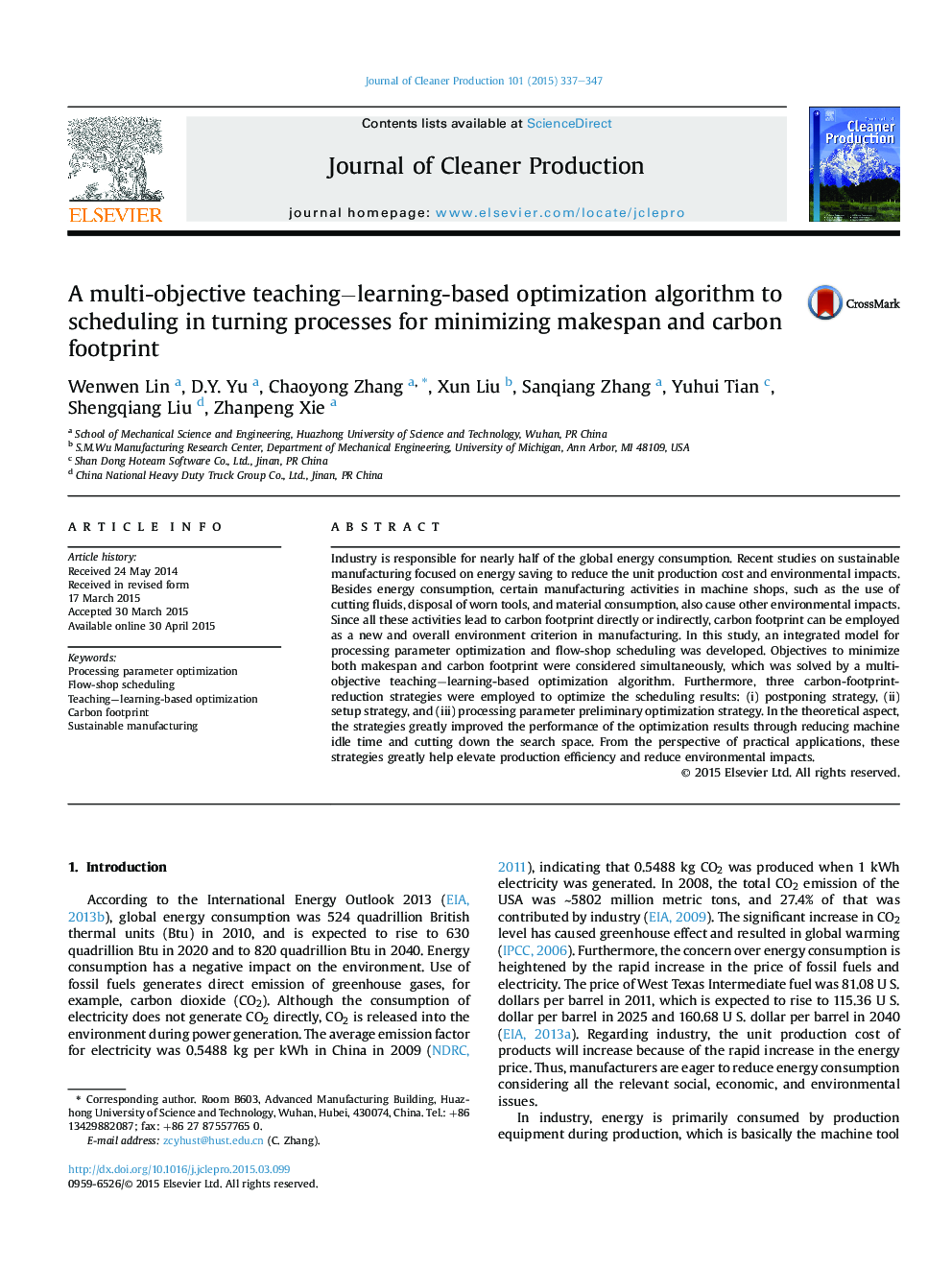| کد مقاله | کد نشریه | سال انتشار | مقاله انگلیسی | نسخه تمام متن |
|---|---|---|---|---|
| 1744604 | 1522145 | 2015 | 11 صفحه PDF | دانلود رایگان |
• An integrated processing parameter optimization and scheduling model was proposed.
• Three carbon-footprint reduction strategies were introduced to the model.
• These strategies greatly elevated efficiency and reduced environmental impacts.
Industry is responsible for nearly half of the global energy consumption. Recent studies on sustainable manufacturing focused on energy saving to reduce the unit production cost and environmental impacts. Besides energy consumption, certain manufacturing activities in machine shops, such as the use of cutting fluids, disposal of worn tools, and material consumption, also cause other environmental impacts. Since all these activities lead to carbon footprint directly or indirectly, carbon footprint can be employed as a new and overall environment criterion in manufacturing. In this study, an integrated model for processing parameter optimization and flow-shop scheduling was developed. Objectives to minimize both makespan and carbon footprint were considered simultaneously, which was solved by a multi-objective teaching−learning-based optimization algorithm. Furthermore, three carbon-footprint-reduction strategies were employed to optimize the scheduling results: (i) postponing strategy, (ii) setup strategy, and (iii) processing parameter preliminary optimization strategy. In the theoretical aspect, the strategies greatly improved the performance of the optimization results through reducing machine idle time and cutting down the search space. From the perspective of practical applications, these strategies greatly help elevate production efficiency and reduce environmental impacts.
Journal: Journal of Cleaner Production - Volume 101, 15 August 2015, Pages 337–347
